The Dachshund family, commonly known as wiener dogs, is recognized as one of the most unique and lovable dog breeds in the world of pets. Have you ever thought about What breed is a wiener dog? This question is quite interesting and deserves further investigation to learn more about the background and traits of this cherished dog breed.
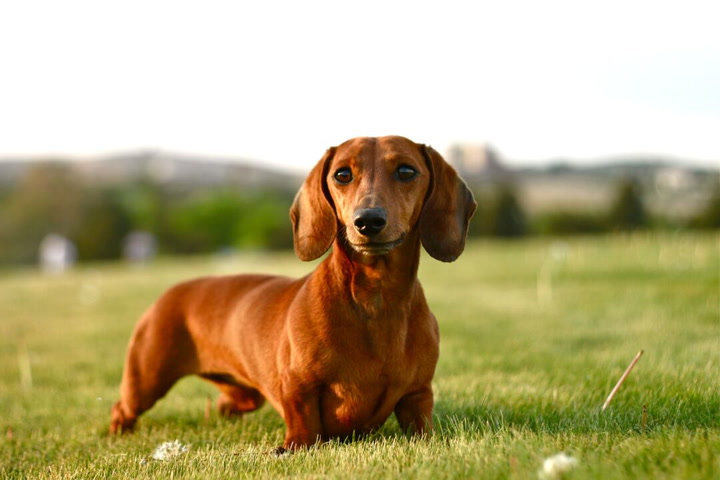
What breed is a wiener dog?
Dachshunds, also known as Wiener dogs, are a breed that originated in Germany. The name Dachshund means badger dog in German, indicating their original role as hunting dogs bred to track badgers and other digging animals.
Physical characteristics
Dachshunds are easily identifiable because of their unique body structure. Now, let’s take a closer look at their main physical characteristics:
Size
Dachshunds are typically small to medium-sized dogs, distinguished by their distinctive body proportions that differentiate them from other dog breeds.

Short legs and elongated body
Dachshunds are easily recognized by their elongated, low body and short legs. This distinctive physique was specifically bred to enable them to effectively enter and move around in burrows.
Different types of fur
Dachshunds are available in three different types of coats:
- Smooth: Short and shiny coat
- Long: Silky and feathered coat
- Wire: Coarse and wiry coat with facial hair.
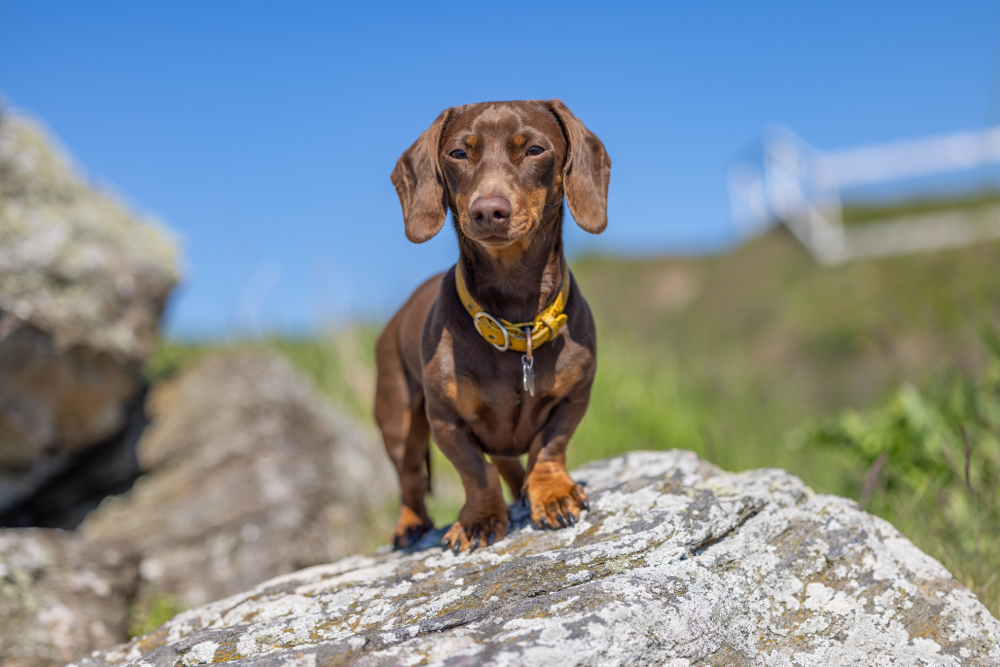
Different types of fur
Size variations
Dachshunds are bred in two different sizes:
| Size | Weight Range |
|---|---|
| Standard | 16-32 pounds |
| Miniature | Under 11 pounds |
Dachshund temperament and personality
General personality traits
Dachshunds are recognized for their inquisitiveness, determination, liveliness, and faithfulness.

Intelligence and trainability
Although Dachshunds are smart, they can be difficult to train because they are quite independent. The most effective way to train them is through positive reinforcement and being consistent.
Need for socialization
It is important for Dachshunds to be socialized at a young age in order to grow up to be well-adjusted adults. Introducing them to different people, animals, and surroundings can help reduce the likelihood of developing fear or aggression problems.
Interaction with children and other pets
Dachshunds can make great pets for families, but they need to be watched around young children because of their delicate backs. They might show territorial behavior towards other dogs, so it’s crucial to introduce them properly.
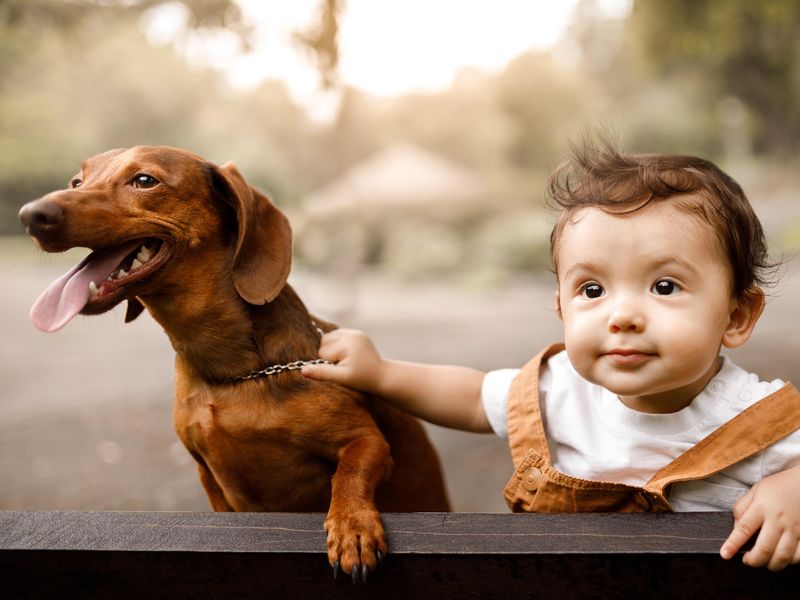
Specific nutritional needs of Dachshunds
Dachshunds are a small breed known for their elongated body shape, which can make them prone to spine issues due to genetic factors. Therefore, it is important to provide them with proper nutrition to support their health and growth. Here are some key nutritional considerations for Dachshunds:
- Feeding Routine: Opt for high-quality, balanced food suitable for their age and divide their meals into smaller portions throughout the day to reduce the risk of bloating.
- Fat and Calories: Ensure they receive enough fat and calories to maintain a healthy body condition, while being mindful of preventing excessive weight gain.
- Protein: Offer adequate protein to promote muscle development and overall well-being.
- Fiber: Include fiber in their diet to support digestion and prevent constipation, which is common in Dachshunds.
- Calcium and Vitamin D: These are crucial for bone and joint health, but be cautious about the balance to avoid spine-related issues.
- Weight Management: Keep an eye on their weight as Dachshunds are prone to obesity, adjusting their food intake as needed.
- Hydration: Make sure they have access to clean water at all times to support urinary tract health and kidney function.
- Age-Appropriate Nutrition: Select food that suits your Dachshund’s life stage, whether they are a puppy, adult, or senior.
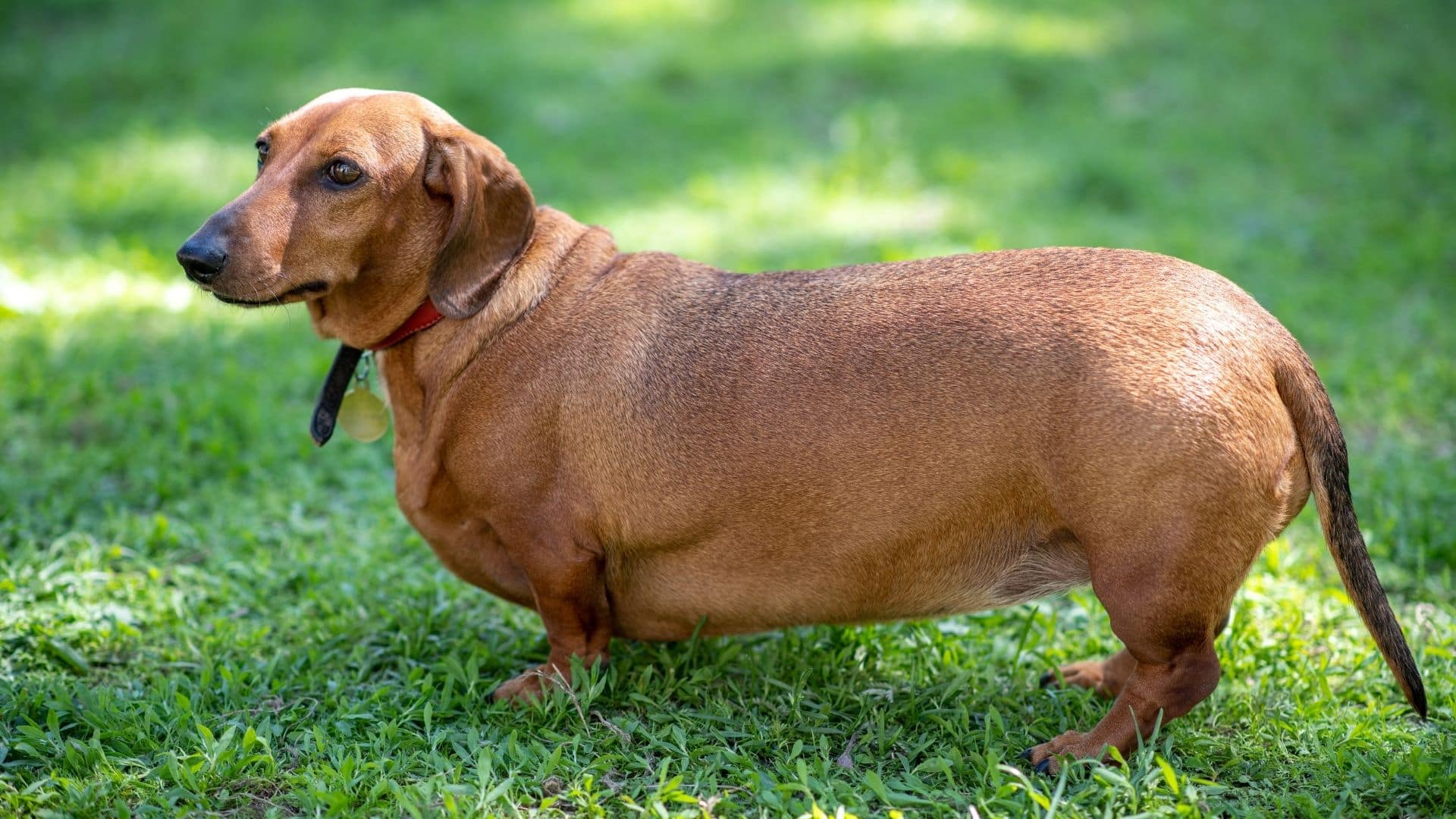
Specific nutritional needs of Dachshunds
It is also advisable to seek advice from a veterinarian to ensure the chosen nutrition plan meets your Dachshund’s specific health and dietary requirements.
Dachshund Health
Common health issues in Dachshunds
Dachshunds are susceptible to specific health issues such as Intervertebral Disc Disease (IVDD), Patellar luxation, eye conditions like progressive retinal atrophy, and obesity.
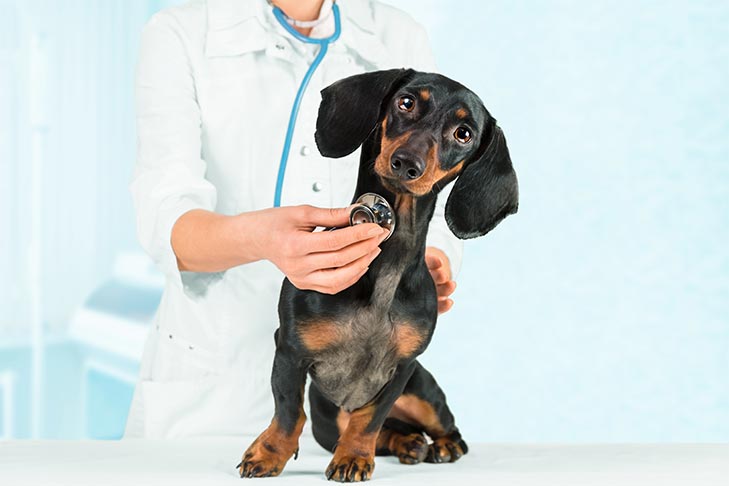
Preventative measures and routine health care
To keep Dachshunds healthy:
- Schedule regular vet visits
- Keep them at a good weight
- Prevent activities that strain their backs
- Take care of their teeth
- Provide suitable exercise for their capabilities.
Dachshunds as family pets
Suitability for different life situations
Dachshunds are versatile and can adjust to different living environments, making them a good fit for individuals, couples, and families.
Adapting to apartment living
Due to their compact size, Dachshunds are a good fit for living in apartments as long as they get enough physical activity and mental stimulation.
Energy levels and space requirements
Even though Dachshunds are small in size, they have a moderate amount of energy and need consistent physical activity to stay healthy both physically and mentally.
Longevity and long-term commitment
Dachshunds usually have a lifespan of 12-16 years, which means that owning one requires a substantial long-term commitment from potential owners.
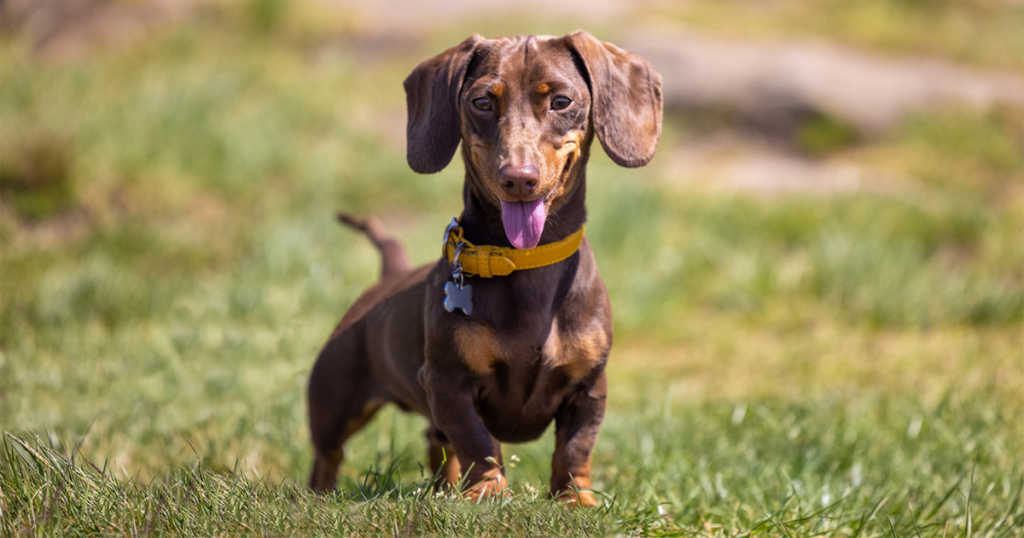
Fun facts and popular culture
Famous Dachshunds in history and media
Dachshunds have been cherished companions of several famous individuals such as Pablo Picasso, Andy Warhol, and Queen Victoria.
Dachshund-specific events and clubs
Yearly races for Dachshunds National competition for Dachshunds Different clubs for Dachshund lovers around the globe
Interesting trivia about this dog breed
- Dachshunds were among the initial dog breeds showcased in dog shows during the 19th century.
- In the US during World War I, they were briefly called liberty pups because of anti-German feelings.
- The first official Olympic mascot was a Dachshund named Waldi at the Munich 1972 Olympics.
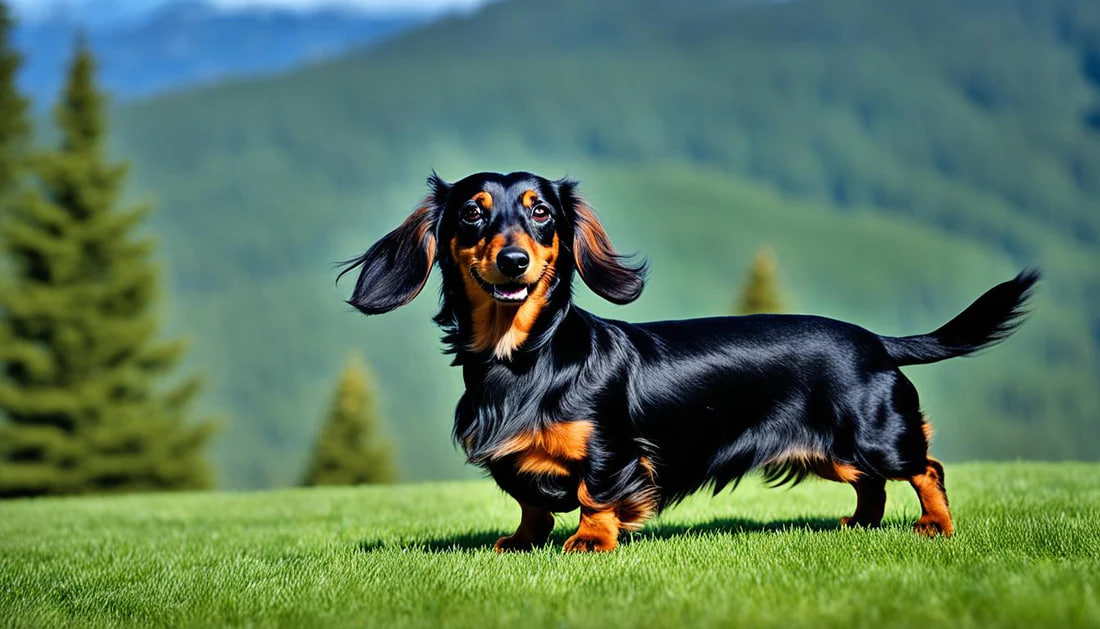
Interesting trivia about this dog breed
FAQs
Q : What fruit can dachshunds eat?
Dachshunds can consume a range of fruits in moderation without any harm. It is important to introduce new fruits slowly and in small amounts to watch for any negative reactions.
Q : When do Dachshunds stop growing?
It is important for dog owners to know when dachshunds reach their full size in order to prepare for their growth stages and requirements.
Dachshunds usually finish growing taller by the age of 12 months, but their bodies keep developing and filling out until they are approximately 18 months old, reaching their complete adult size and weight during this time.
Q : Are wiener dogs good pets for families?
A: Indeed, Dachshunds can be wonderful companions for families. They are loving, courageous, and typically get along well with kids if they receive proper socialization and training.
Q : Do wiener dogs have any health concerns?
Dachshunds are at risk for specific health problems, such as back issues caused by their long spines. It is crucial to be cautious when handling them and offer adequate support to avoid spinal injuries.
Read more Best dog food for dachshunds

